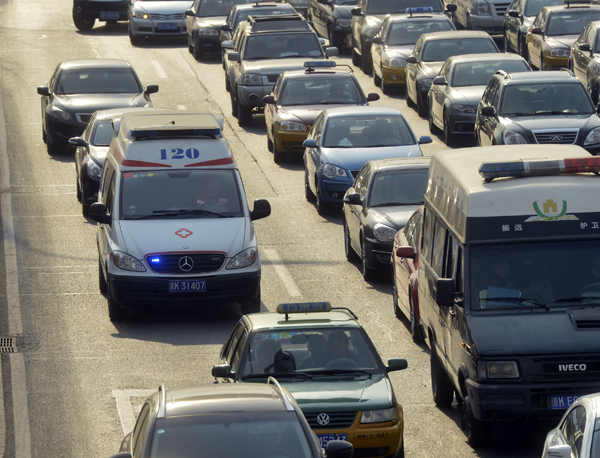 |
|
An ambulance is seen in a traffic jam during the morning rush hour in Beijing on Monday. [Photo by Yang Yi / For China Daily] |
A woman in Tai'an in East China's Shandong province, was charged about 3,600 yuan ($550) for an ambulance to take her ill father to a hospital in the provincial capital Jinan, which is just 80 kilometers away. Guangming Daily on Thursday called for stricter supervision and more subsidies for ambulance services.
In the aforementioned case, the ambulance fee should have been 3 yuan per kilometer, according to relevant regulations issued by the local price bureau. Thus the total fee should have been 480 yuan for a round trip.
However, ambulance service providers are also allowed to negotiate the price with customers beforehand, and since they are usually only called in emergencies they have the upper hand in the negotiations. People are unlikely to cancel the ambulance they booked just because they are being overcharged, which makes most of the negotiations rather unfair.
Hence, to stop the charging of excessive fees local governments need to keep a tighter rein on how much ambulance services cost, and hold those who overcharge accountable.
That, of course, does not necessarily mean putting an end to the practice of negotiating a price. Unlike taxis patrolling across the cities, ambulances are only designed to serve a few patients in serious conditions, not some random passengers. In other words, their operating costs cannot simply rely on market demand.
Yet the increasing complaints about costly ambulance fees highlight the need to serve the public with better emergency services. For starters, all local emergency centers should be equipped with enough ambulances for the size of the local population. More, they should strictly supervise the costs and disclose them for public scrutiny.
More importantly, government subsidies should be provided to emergency centers, as emergency aid is usually for those who are seriously ill and have to spend a lot on medical treatment.